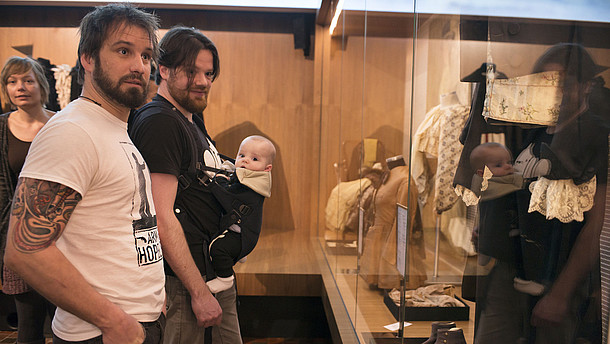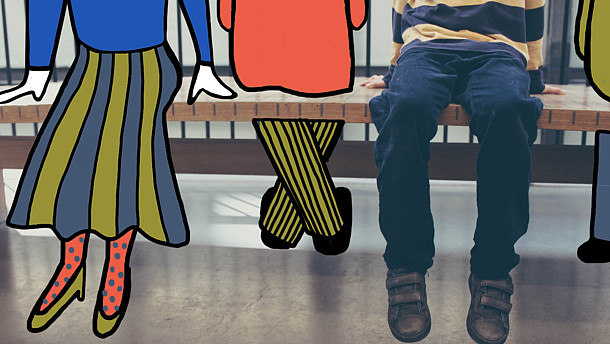Re-print, originally appeared on: <link http: www.wipo.int wipo_magazine en article_0003.html external-link-new-window external link in new>WIPO Magazine in August 2017
By Jean Dryden, International Council of Archives, Paris, France
An organization’s archives may consist of correspondence, reports, financial and legal documents, recordings of public speeches, publicity materials; an individual’s archives may include letters, diaries, photograph albums, scrapbooks or home movies, for example.
The Universal Declaration of Archives, adopted by UNESCO in November 2011, clearly expresses the public interest role that archives fulfill:
“Archives are a unique and irreplaceable heritage passed from one generation to another ... They are authoritative sources of information underpinning accountable and transparent administrative actions. They play an essential role in the development of societies by safeguarding and contributing to individual and community memory. Open access to archives enriches our knowledge of human society, promotes democracy, protects citizens’ rights and enhances the quality of life.”
Archives can also refer to an organization whose mission is to preserve the documentary heritage of a particular institution. For example, the United Nations, the United Arab Emirates, the Government of Malawi, the City of Montréal, Cambridge University and the Coca-Cola Company all operate archives to preserve archival materials that fall within their respective acquisition mandates.
Archivists and other professions
The professionals who assess, collect, organize, preserve and provide access to archival holdings are archivists. They are sometimes confused with other related professionals, such as librarians and museum curators. While all three professions collect, preserve and make materials accessible for research, in general they differ significantly in the material with which they work. Materials in archival collections are unique and often irreplaceable, whereas libraries can usually replace worn-out or lost books and other published materials in their holdings. Museum curators collect, study and interpret mostly three-dimensional objects, while the archivist works primarily with paper, film, audio and digital records.
Why do archives need copyright exceptions?
<link http: www.wipo.int copyright en>Copyright law aims to achieve a balance between the interests of creators, so they receive a just reward for their works, and the public interest in terms of ensuring the public has access to such works. In this way, copyright law supports further creation as well as the growth of knowledge and culture and its diffusion.
Archives play an essential role in serving the public interest by preserving and making such works available to the public. Archives, however, are subject to the same copyright law as commercial publishers and the entertainment industry although archival holdings were not (for the most part) created for commercial purposes or for dissemination to the public, and thus are largely, but not exclusively, unpublished.
The unpublished nature of the majority of archival holdings has several consequences. Rights holders are unlikely to be interested in monetizing their intellectual property; in fact, many are unaware that they are copyright owners. Archival holdings also contain a high proportion of orphan works, that is, works for which the copyright owners cannot be identified or located. In general, this is because copyright owners of these materials have no vested interest in being readily traceable to grant permission for use or to derive income from their creations. Moreover, for archival material, there are no effective licensing models. Thus, in order to be able to serve their users, particularly in a global society, archives are dependent on internationally recognized exceptions and limitations to copyright law.
What copyright exceptions do archives need?
Archives require limitations to copyright law in the following areas:
Preservation: One of the primary roles of an archive is to preserve the materials in its care. Preservation often requires copying. For example, where originals are too fragile to be handled archives create reference copies that researchers must use in order to safeguard the originals. Given the speed of technological change, the need is even more urgent for digital holdings. To ensure that digital holdings remain accessible, it is standard practice for archives to copy works from proprietary formats to open standard formats, or to copy records to newer versions of software. Archives therefore require an exception to copyright law to ensure that they are able to continue to serve the public interest while operating within the bounds of copyright law.
Reproduction for research: The other primary role of an archive is to make its holdings available for study and research. Because archival material is unique and irreplaceable, archives do not lend their holdings, but rather, provide users with copies. The Internet provides exciting opportunities for archives to make their holdings available to a wider research audience by digitizing them and making them available online. As such, archives require a reasonable exception to be confident that such activities do not infringe.
Cross-border uses: The territorial nature of copyright is incompatible with today’s global landscape. Frequently, researchers need to consult records in other countries (as a result of migration, trade and so on) for academic or personal research or in pursuit of legal rights relating to nationality, identity and property. For example, when the Government of France released the archives of its counterintelligence service in Indochina in the 1950s, many researchers from Asia, not just from France, were interested in investigating those records. Similarly, the archive of photography collected from 26 African countries by the School of African Heritage in Benin is only accessible to users if copies of the archive material are made or if users actually travel to the archive.
Some nations have exceptions and limitations to copyright that allow archives to perform their public role without fear of infringing rights. However, exceptions and limitations to copyright law tend to vary from one country to another, and often do not provide for the export of archival materials in the first place. And in instances where such export is possible, archives seeking to share their materials with clients in other countries still face a number of challenges. For example, when copies are sent to a country where the copyright law differs or where the copy does not meet national requirements. How can the archivist or the user act lawfully? Either archives cannot provide cross-border services or copies will be provided regardless of the law. A solution need not be complex. It could simply involve all countries recognizing the legitimacy of a copy lawfully made by an archive in another country.
Orphan works: Most archival materials are the accumulated records of governments, companies, charities, families, and individuals. For example, the papers of a cabinet minister may contain thousands of letters and emails from citizens, bureaucrats and other officials. If an archive wished to digitize these records and make them available online, it would involve a labor-intensive and costly process of identifying and tracking down thousands of rights holders, many of whom are not known or cannot be located. Archives need an exception that makes it possible to make orphan works legally available without a costly (and in many cases fruitless) search.
Limited liability: Because they fear legal liability, archivists are extremely cautious when selecting what they make available online. They choose only holdings in which they own the copyright or in which the copyright has expired. Consequently, their online offerings are a small fraction of their rich holdings, and may not best serve users’ interests. As a consequence, the information service to which the public is entitled is greatly diminished. This is yet another reason why archives require reasonable exceptions that limit liability for their legitimate actions. Such a limit on liability would enhance the range of online offerings and enable archivists to better serve society.
Technological protection measures: The WIPO Internet treaties (the WIPO Copyright Treaty and the WIPO Performances and Phonograms Treaty) require signatories to amend their copyright legislation to prohibit the circumvention of technological protection measures (TPMs). Statutory limitations and exceptions should not be nullified by TPMs. Archives should be allowed to acquire and apply tools to remove such measures, so they can fulfil their public interest mission. For example, archives typically acquire materials after they are no longer needed for business purposes. The passwords, encryption keys and so on may have been lost or forgotten, and the archives may need to circumvent the TPMs to examine the material to see if they want to acquire it or access it for the purposes of preservation, cataloguing and making available to users. A mandatory provision that provides a general exception to the circumvention prohibition would ensure recognition of the legitimacy of non-infringing acts performed by archives. To do otherwise undermines copyright’s fundamental balance.
Contractual override of exceptions: Exceptions and limitations that are fundamental to the archival mission may be overridden by contractual agreements. For example, some archives use private sector vendors to provide cloud storage for their digital holdings. If the vendor is located in another jurisdiction the cloud storage provider may fail to comply with the copyright laws of the repository’s jurisdiction. Contractual overrides completely nullify the purpose of the exceptions, and tip the copyright balance entirely in favor of rights holders, making it more difficult for archives to fulfil their public service mission.
Archives call for an international treaty
Copyright owners may consider that the list of exceptions and limitations that archives are calling for is nothing more than a blank check. But that could not be further from the truth. In the first place, the professional principles that undergird archival work require archives to take reasonable steps to protect the interests of the owners of rights in the works in their collections. Second, the exceptions outlined would be subject to reasonable conditions, such as, for example, that the activity is for non-commercial purposes, and would not affect any established market for the works in question. Archivists need these exceptions to be able to do their job.
Limitations and Exceptions for Libraries and Archives has been a separate item on the agenda of WIPO’s Standing Committee on Copyright and Related Rights since November 2011.
While many member states strongly support a binding international treaty, others maintain that an exchange of national practices is sufficient. Exceptions are fundamental to maintaining the balanced structure of copyright law, and the consistent application of exceptions is necessary to enable effective archival services that fulfil the social objectives of copyright law in a globalized world. Archivists and their allies will continue to advocate for a treaty that requires signatories to establish minimum exceptions and limitations to allow archives, libraries and museums to serve their users, including by providing cross-border access to their holdings in a globalized world.





